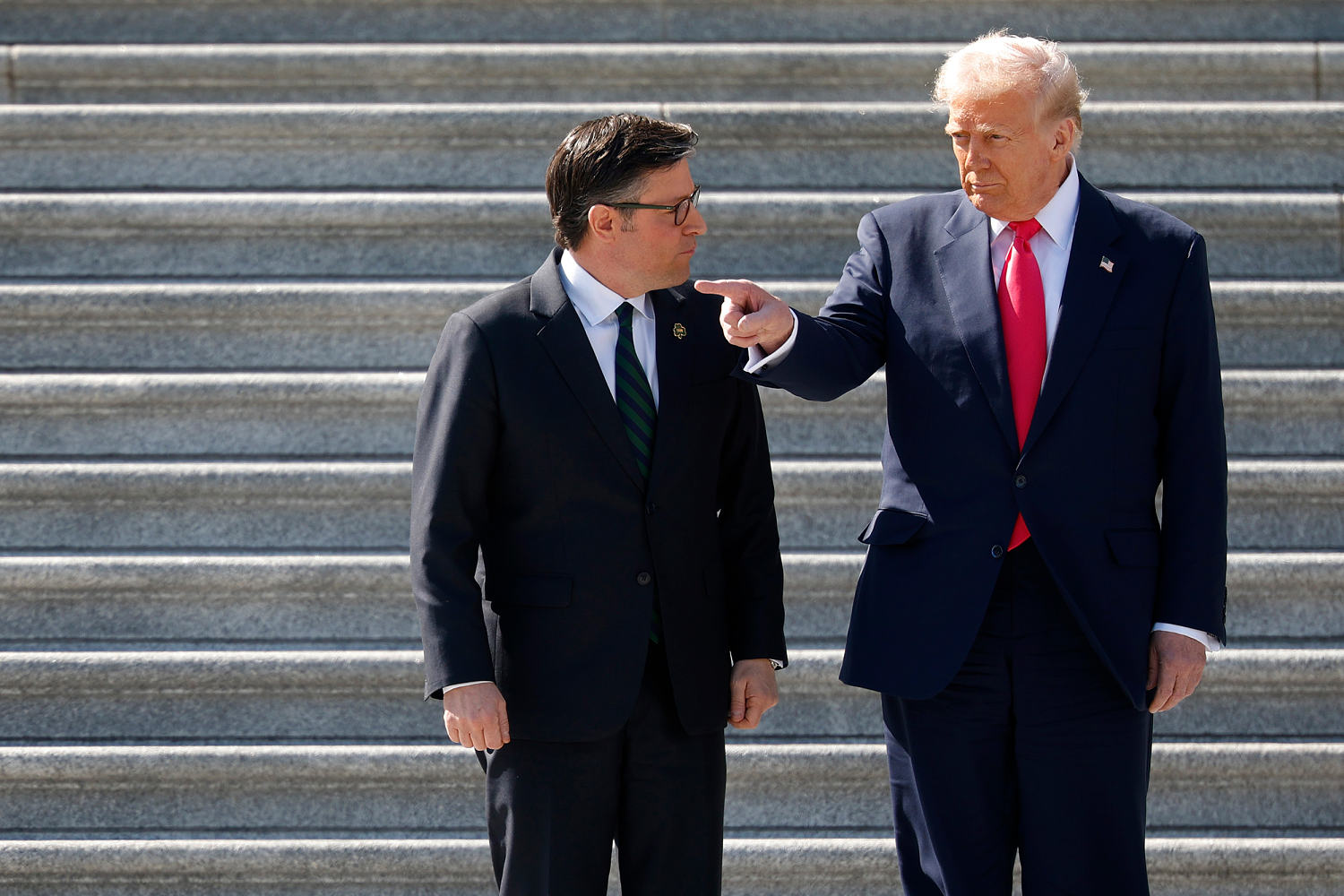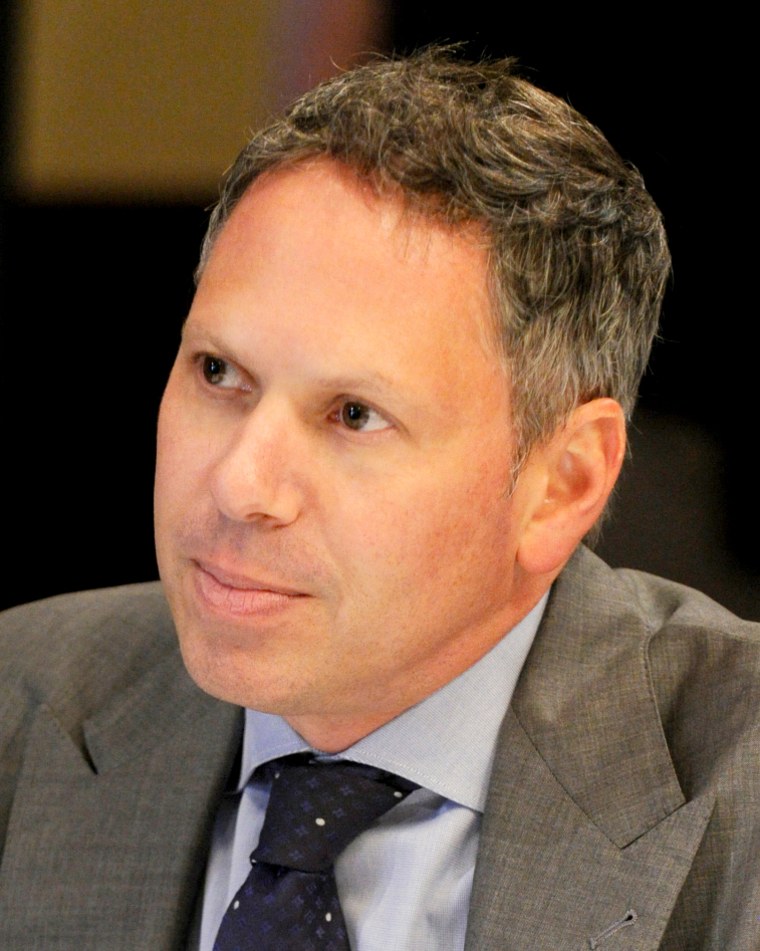Republicans consider unraveling a key part of Obamacare in Trump agenda bill


WASHINGTON — Top Republicans are considering rolling back a major piece of the Affordable Care Act in their massive bill for President Donald Trump’s agenda, exploring savings by slashing how much money the federal government spends to cover the 2010 law’s expansion of Medicaid.
Rep. Brett Guthrie, R-Ky., the chair of the House Energy and Commerce Committee, made the case for it Monday as Congress returned from a two-week recess, saying Medicaid spending is growing at an unsustainable rate.
“We have an expansion population that gets 90% federal money, and you have traditional [Medicaid], so a disabled child in Kentucky gets 72 cents when they go to the doctor. And we know that’s just unsustainable,” Guthrie said. “We want to fix that so everybody gets coverage. So I think it’s going to be a really responsible response.”
Guthrie’s committee is tasked with finding $880 billion in savings, a target that can’t be met without cutting Medicaid or Medicare, according to Congress’ nonpartisan budget scorekeeper.
The menu of options includes changes to Medicaid’s Federal Medical Assistance Percentage (or FMAP) and a new per capita cap on the population of people covered under the expansion. While Guthrie didn’t confirm what will make it into the package, he said he’d like to finalize it and vote it out of committee next week.
The 90% federal match was a linchpin of the Medicaid expansion under the ACA, also known as Obamacare, enticing states to adopt the provision, which has since extended coverage to an estimated 20 million people in more than 40 states.
“The ACA took a three-pronged approach to increasing access to health coverage — Medicaid expansion, tax credits to make premiums more affordable for those who lack employer-provided insurance and pre-existing condition protections. The Medicaid expansion has been a key part of reducing the uninsured rate to the lowest levels in history,” said Larry Levitt, executive vice president for health policy at KFF, a research group.
Levitt called the 90% federal promise “key to getting both red and blue states to take” the Medicaid expansion after the Supreme Court made it optional. Lowering it to the traditional rate the feds pay on Medicaid “would be a huge cost shift to states, and many would have difficulty coming up with the extra money,” he added. “Some states even have triggers that would eliminate the expansion if the match rate is lowered.”
Medicaid funding has emerged as one the biggest policy issues Republicans are trying to work through as they craft their party-line bill for Trump’s agenda, which includes extending his 2017 tax cuts, boosting funding for immigration enforcement and the military and raising the debt limit.
Speaker Mike Johnson, R-La., has laid out an ambitious timeline of passing the bill through the House by Memorial Day.
Guthrie told NBC News he’s working on finding consensus, given the House GOP’s narrow majority and no hope of winning Democratic support for the package.
“People say: ‘This is my red line. I can’t cross it.’ And we say, ‘OK, where can we meet?’ And that’s what we’re working,” he said.
Rep. Austin Scott, R-Ga., endorsed the potential Medicaid change.
“When the Dems expanded Medicaid under the Affordable Care Act, they made that percentage match 90-10%. So the federal government is paying 90% of the Medicaid expansion. So what we have talked about is moving that 90% level of the expansion back towards the more traditional levels of 50% to approximately 80%, instead of the 90-10 — 90% being federal, 10% being state — match,” Scott said last week on Fox News.
“And nobody would be kicked off Medicaid as long as the governors decided that they want to continue to fund the program. And so we are going to ask the states to pick up and pay some additional percentage of Medicaid,” he continued.
Some lawmakers cast doubt on the proposal.
“That’s easy to say. States can’t print money the way they can around here. So it would be very difficult for the state to make up that difference,” said Sen. Angus King, I-Maine. “It would be very harmful to people. One of the things that people don’t realize is 70% of the nursing home folks in Maine are on Medicaid. … So that kind of cut would be a burden on the state that’d be very hard to meet.”
Plenty of Republicans have voiced reservations about significant Medicaid cuts, and their votes could make or break the bill’s prospects. Even Trump has promised that reductions in Medicaid funding wouldn’t harm benefits.
Sen. Lisa Murkowski, R-Alaska, said she’s skeptical of unwinding the funding passed under the ACA.
“I’ve supported not only the ACA premium subsidies, but Alaska has really seen the direct benefit of Medicaid expansion,” Murkowski said Monday. “The premium supports have been very important to my state. And the fear amongst many, many is that those go away and people will not be able to afford their health care.
“They’re still going to have challenges. They’re still going to need care. They’re going to end up in the emergency room,” she added. “So these are some of the things that Alaskans have been sharing with me.”
Sen. Susan Collins, R-Maine, said she hasn’t seen the specifics of the Medicaid policy.
“The one thing that I would support are carefully crafted work requirements for able-bodied adults without preschool children,” she told reporters. “But I want to make sure that we are not depriving seniors, children, low-income families, people with disabilities and our rural hospitals of Medicaid.”
Rep. Mike Lawler, R-N.Y., said last week on Fox Business that he’s open to work requirements for able-bodied adults, citizenship verification for Medicaid and more frequent eligibility checks.
“Beyond that, I am not going to consider any changes to cut benefits to anyone. Period,” said Lawler, who represents a politically competitive district that Democrats are targeting in next year’s midterm elections.
House Minority Leader Hakeem Jeffries, D-N.Y., said defeating the broader GOP package is “a matter of life and death at this moment” and an “all-hands-on-deck” effort for Democrats.
“Health care is under assault by Donald Trump, Elon Musk, the administration and rubber-stamp Republicans in the House and in the Senate. These people, these extremists, they want to take health care away from the American people,” Jeffries told reporters. “In terms of this FMAP proposal, it’s all part of the same scheme. They want to end Medicaid as we know it. They’re going to hurt children, hurt families, hurt seniors, hurt people with disabilities, close hospitals, shut down nursing homes. And people will die.”
Guthrie said, however, that the 50% floor on Medicaid FMAP outside the expansion population is unlikely to change.
“There’s a lot of negotiation on FMAP,” he said. “I think everything’s on the table till we figure out where 218 [votes] are, but that’ll be a more difficult thing to change.”




